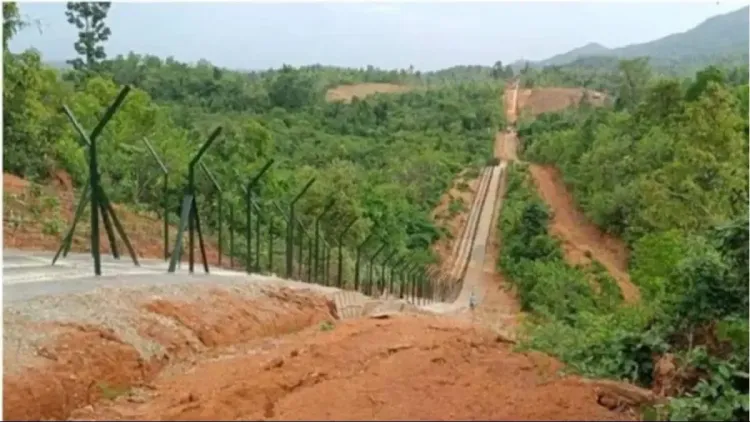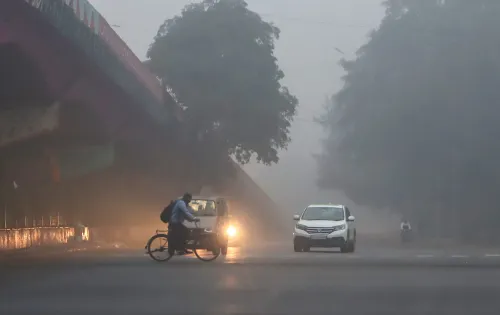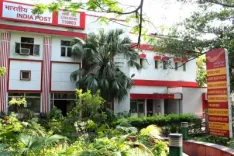Naga Council in Manipur Opposes Border Fencing with Myanmar

Synopsis
Key Takeaways
- UNC opposes India-Myanmar border fencing.
- MZP urges reconsideration of FMR termination.
- Community unity is vital against colonial actions.
- New cross-border movement scheme replaces FMR.
- Fencing aims to control smuggling along the border.
Imphal/Aizawl, Jan 27 (NationPress) The United Naga Council (UNC) has once again expressed its strong disapproval of the border fencing along the India-Myanmar border.
In Mizoram, the leading student organization, Mizo Zirlai Pawl (MZP), has reached out to Union Home Minister Amit Shah, calling on the Central government to rethink its decision to abolish the Free Movement Regime (FMR) and to halt the construction of the fencing along the India-Myanmar border.
UNC President N.G. Lorho has issued a statement directing all units and subordinate organizations to take decisive action to obstruct the border fencing efforts within their respective areas without hesitation.
"No activities concerning the alleged construction of border fencing along the imaginary artificial India-Myanmar border will be tolerated in the Naga ancestral territory. Respected units and subordinate organizations of the Council in the affected regions are urged to unite and take strong measures to prevent the fencing activities without fear or favor," the UNC directive emphasized.
It further stated that the Naga population in Manipur should remain resolute in their fight against what they call the devious scheme of colonial forces aimed at displacing the Nagas from their lands through the construction of walls and fencing along the imaginary India-Myanmar border.
Both the Nagaland and Mizoram governments, along with numerous political parties in these states, have expressed their opposition to the fencing and the FMR.
Tribal communities residing on both sides of the India-Myanmar border, along with the governments of Nagaland and Mizoram, have been advocating for the continuation of the previous FMR regime.
The Ministry of Home Affairs has recently introduced a new plan to issue passes to residents living within 10 km of the border on both sides of India and Myanmar to manage cross-border movements.
This new plan will replace the previously suspended FMR, which allowed individuals living close to the India-Myanmar border to travel 16 km into each other's territories without the need for a passport or visa.
The northeastern states of Arunachal Pradesh (520 km), Manipur (398 km), Nagaland (215 km), and Mizoram (510 km) share a total of 1,643 km of unfenced border with Myanmar.
The entire 1,643 km porous India-Myanmar border, known for smuggling activities involving arms, ammunition, and narcotics, is set to be fenced at an estimated cost of Rs 31,000 crore.
In Mizoram, the MZP has sent its communication to the Union Home Minister through retired Governor General V.K. Singh.
The MZP's letter highlighted that the FMR with Myanmar has been crucial in maintaining and promoting the Mizo lifestyle and cultural connections between the ethnic Mizos of both nations by encouraging cross-border interactions, economic activities, resource sharing, and joint participation in cultural and religious events.
"The proposed termination of the FMR and the fencing of the India-Myanmar border threaten to disrupt these connections, stripping the Mizo community of their cultural rights and access to vital resources. This decision disregards the geographical, historical, and economic ties that have long united our communities beyond political borders," the letter stated.










